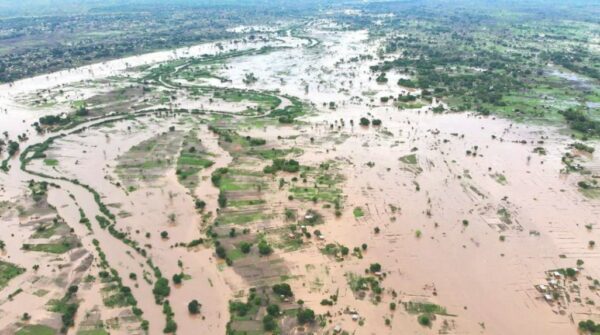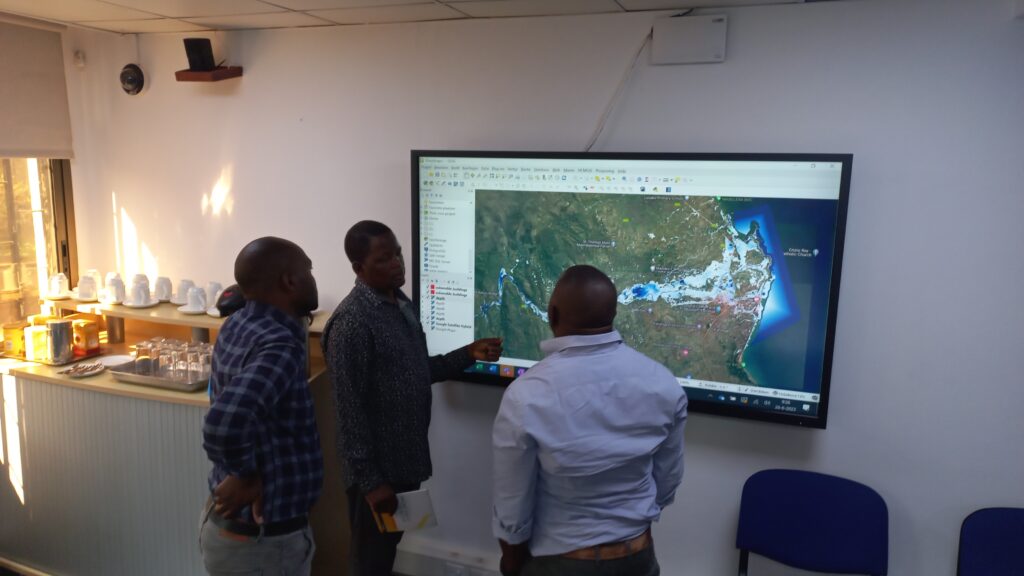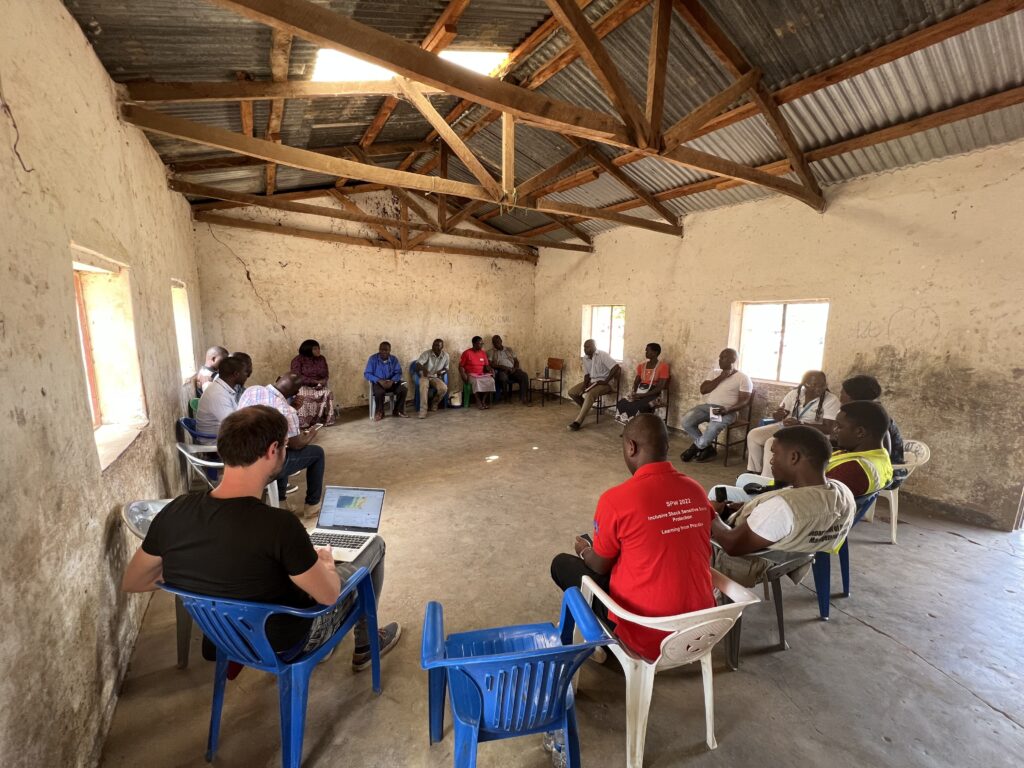Over the past five decades, Malawi has experienced 21 major floods, with projections of these events further increasing in frequency and severity due to climate change. The impact of these floods is huge: homes and farmlands are destroyed; livelihoods are at risk; and children’s education is interrupted. On top, damaged sanitation facilities expose communities to disease outbreaks such as cholera, and destroyed infrastructure leaves many disconnected from much-needed supplies and information. In anticipation of and response to such events, the Malawi Red Cross Society takes the lead in offering timely services countrywide for immediate relief and long-term recovery, covering various survival needs of those affected.

In the relentless struggle against the intensifying threat of floods in the country, a new initiative champions localized flood models for anticipatory action and elevates the game by integrating them into the Impact-Based Forecasting (IBF) Portal. This dynamic combination enhances precision, efficacy, and forecast quality for those working to reduce the devastating impact of floods. Initiated and funded by the United Nations Children’s Fund (UNICEF), this project is co-funded by Arm and Partners for Water, and implemented by the Malawi Red Cross Society, Royal Haskoning DHV, and the Netherlands Red Cross’ data and digital initiative, 510. It is further supported by Malawi’s national authorities for water resources, meteorological services and disaster management, the University of Malawi, the African Drone and Data Academy and Globhe. While Royal Haskoning DHV developed the localized flood model, 510 integrated it into the IBF Portal. Government authorities and humanitarian organizations such as the Malawi Red Cross Society now utilize this system to inform their disaster management activities ahead of extreme weather which could turn into floods.
Precise forecasting – amplified by the IBF Portal
“The project has provided many opportunities to fill gaps in risk identification, monitoring and effectively managing hazards. By incorporating the IBF Portal, communities have a chance to timely prepare for disasters which reduces their impact in the long run.”
Chance Muwama, Anticipatory Action Specialist at the Malawi Red Cross Society
Localized flood models can accurately forecast and anticipate region-specific events, resulting in a more efficient allocation of resources and ultimately minimizing the overall economic and human costs associated with flood disasters. Combined with the IBF Portal and weather forecasts produced by the national weather service, the precision of Royal Haskoning DHV’s localized flood model is taken to new heights. The IBF Portal serves as a digital one-stop-shop to support the decision-making of disaster managers by displaying information on the impact of an incoming disaster at the right time for them to be able to act and in turn, save more lives. Through its compatibility with localized models and other real-time data sources, the portal ensures that forecasts are not only localized but also up-to-the-minute. This way, anticipatory action professionals are empowered to dynamically anticipate, mitigate, and respond to the evolving nature of flood events. The IBF Portal is further able to identify at-risk infrastructure such as water points, schools, and health clinics, allowing disaster managers to tailor their solutions to the unique challenges and needs of each community.

“This rain season, we tested the IBF Portal for the first time to predict floods and their impact in Northern Malawi. Once heavy rains started, we noticed that stakeholders were awaiting warnings coming from the IBF Portal, which showed that they are excited about it and expect it to support them with alerts and flood preparedness.”
Tautvydas Juskauskas, Innovation Specialist at UNICEF
With the opportunity to better predict and mitigate the impact of upcoming floods, it becomes possible to reach community members with potentially life-saving information. In pursuit of this goal, the Malawi Red Cross Society works closely with village protection committees to ensure that communities receive the information that is most relevant to them, in their own local language and through the communication channels they prefer and trust. As part of this initiative, 510 conducted an exercise with the Malawi Red Cross Society, UNICEF and other stakeholders to connect the IBF portal to these pre-existing structures and processes for community engagement. With the outcome of this exercise, a clear guide can be created, outlining the key steps and responsibilities for the timely dissemination of early warnings to communities who are about to be affected by floods.

“In cooperation with stakeholders in-country, we aimed to create accurate warnings for the area of interest. The testing phase during the extreme wet season confirmed the system’s value, and we are on track to optimize it into an accurate impact-based flood warning system that can be scaled up for the rest of Malawi.”
Herman de Jonge, Project Manager and Senior Consultant Water Management and Resilience at Royal Haskoning DHV
In Malawi’s battle against climate-induced floods, the collaboration between localized flood models and the IBF Portal emerges as a game-changer. By augmenting the precision of localized models with the impact forecasting capabilities of the IBF Portal, designed with and for disaster managers, anticipatory action professionals are equipped to navigate the complexity of flood events with unparalleled accuracy. As we witness the fusion of technology and local expertise, localized flood models in combination with the IBF Portal can ensure that communities are informed and safeguarded against the rising waters of uncertainty.
We want to hear from you!
Are you interested in hearing more about this project, or incorporating the IBF Portal into your National Society’s or organisation’s work, tailored to your context? Please reach out to:
Service coordinator, Anticipatory Action: Aklilu Teklesadik ateklesadik@redcross.nl
Product manager, IBF Portal: Blaise Selvan bselvan@redcross.nl
Advisor, Community Engagement and Accountability: Jonath Lijftogt jlijftogt@redcross.nl